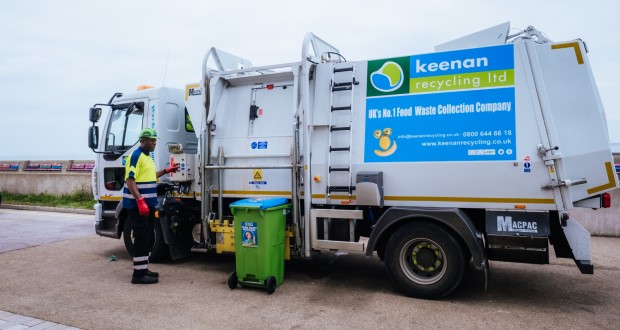On top of this, the survey also found that 37% of food retailers in the UK either aren’t aware of upcoming legislation on food waste, or if they are, have little or no understanding of it.
The research by the national food waste recycling company also looked at whether food waste recycling was a priority for retailers. It found that almost half (41%) of UK food retailers do not think food waste is a core priority and over a third (36%) said that they do not recycle food waste at all.
This new data comes as proposed legislation from the Department for Environment, Food, and Rural Affairs (DEFRA) Environmental Act is fast approaching, which plans to make it a legal requirement for companies in England to separate and recycle food waste.
Similar legislation on businesses producing more the 5kg of food waste per week has been in force in Scotland since 2016 and will be coming into force in Wales this October, leaving businesses with minimal time to prepare.
However, despite the lack of understanding in the sector, half of respondents (49%) did say that their business is working to gain an understanding of the proposed legislation.
Grant Keenan, managing director at Keenan Recycling, said: “Rising inflation and a looming recession combined with staff shortages and customers cutting back on their spending, has led to a tough time for the food retail industry.
“Grocers and convenience store managers are having to think about how they can cut costs to maintain profitability and minimise the amount of added expense they are passing on to customers. So, an average saving of £7,000 could have a big impact on businesses who are struggling.
“On top of this, with pending legislative change and pressure for businesses to make their own net zero plans public, food recycling will be key to how operations function sustainably in the future, so the best time to become involved with it is now.”
The legislation introduced in Scotland back in 2014, where Keenan’s headquarters is situated, made food waste recycling mandatory for food retailers producing over 50kg of waste.
This was then extended to any business producing over 5kg of waste a week in 2016, making it a legal obligation for any such business to recycle using a registered waste carrier service.
Keenan added: “While legislation in Scotland has been around for a while, the rest of the UK appears to be following suit. In fact, similar legislative change is due to come in to force in Wales this October, with updates to English legislation proposed for later this year.
“This means that food retailers need to spend time understanding food waste recycling and its many benefits, not only financially, but also when it comes to resource productivity and creating a more circular economy.”
Keenan Recycling’s full ‘Food Waste Recycling 101’ report can be downloaded here.
 Talking Retail Grocery and product news for independent retailers
Talking Retail Grocery and product news for independent retailers






